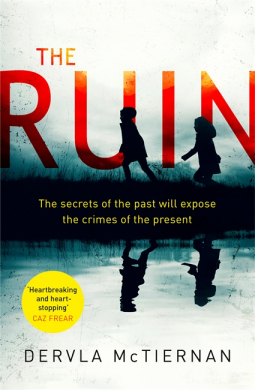“In Irish, Rúin means something hidden, a mystery, or a secret, but the word also has a long history as a term of endearment.”
“Twenty years before, he’d walked away from the Blake case, and it had come back to haunt him.”
February 1993: Called out to a “minor domestic incident” at a remote, decrepit old house, the last thing young police officer Cormac Reilly expects to find is a woman dead of a heroin overdose, and two frightened children - five-year-old Jack and his protective fifteen-year-old sister, Maude. After taking the children to safety Cormac has nothing further to do with the case, but he’s never forgotten them.
Twenty years later in 2013, Cormac, now a Detective Sergeant, has returned to Galway - transferring from Dublin due to his girlfriend’s career (and isn’t that a nice change?) - where he’s not being made particularly welcome by some of his new colleagues. Not only that, there’s a distinct whiff of corruption in certain quarters.
Meanwhile, young doctor Aisling Conroy is reeling from the unexpected suicide of her boyfriend Jack... and the reappearance of the sister Jack hasn’t seen for twenty years. Maude is certain Jack didn’t kill himself, and she’s on a mission to prove it.
I had The Ruin on my “shelf” for ages before getting around to reading it, but I wish it hadn’t taken me so long because I thoroughly enjoyed it. I do love a good police procedural and Cormac is a great addition to the ranks of fictional detectives. The plot is gripping, surprising, at times distressing and ultimately very moving - but Dervla McTiernan never goes for the easy resolution. Something which I would’ve put money on happening at the end then didn’t, and I found that quite refreshing.
The Ruin is the first in a series (yay!) but doesn’t feel like it at times; with unexpanded-upon references to Cormac’s past cases and how he met his girlfriend Emma, I had to double check I wasn’t missing out on some continuity. Presumably, we will learn more in future instalments - the relationship with Emma is only briefly touched upon, but I feel sure there’s more to come. Cormac himself is a great and very likeable character, and there are also some excellent female characters - Aisling, Maude and Cormac’s fellow garda Carrie O’Halloran (I liked her a lot).
I’m now very much looking forward to The Scholar, out next year!


